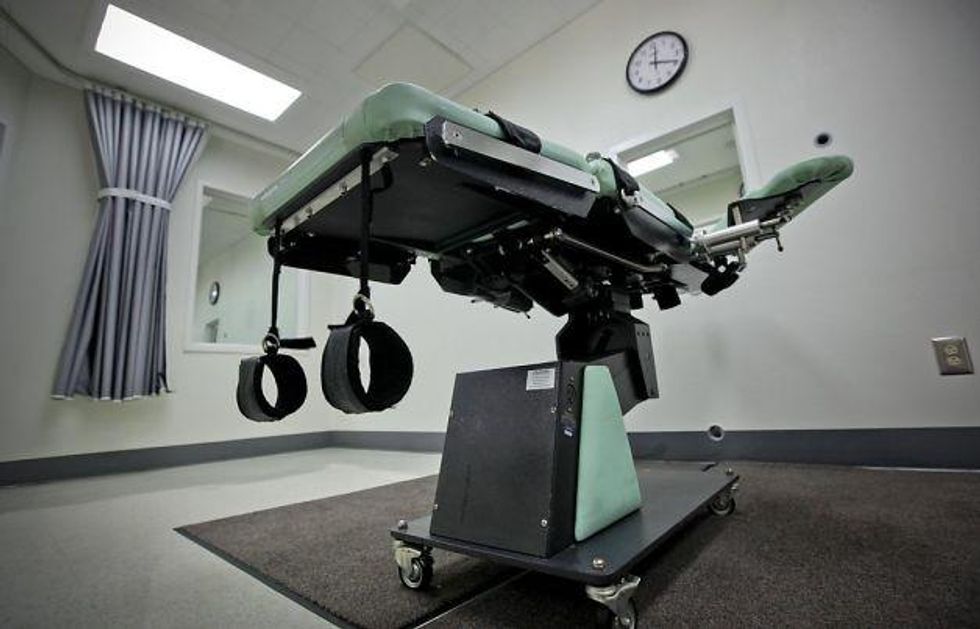Ohio
announced Monday it plans to kill death row inmate Ronald Phillips using an experimental and untested cocktail of drugs for lethal injection, despite widespread concern that this constitutes cruel and unusual punishment and experimentation on a human being.
The state joins a growing number across the U.S. turning to new and/or unregulated drugs for executions.
Phillips' lawyers promptly filed litigation on the grounds that this new method is being rushed forward without proper investigation, and the execution date has been pushed to November 14, according to The Boston Globe.
In a statement emailed to Common Dreams, officials with the Ohio Department of Corrections said that prisons have run low on the drug pentobarbital and so will turn to an untested and unconventional cocktail of midazolam and hydromorphone.
Midazolam is the same drug that, when used in mid-October for the first time in the U.S. to kill Florida inmate William Happ, appeared to subject the man to severe pain. The Associated Press reported, "It appeared Happ remained conscious longer and made more body movements after losing consciousness than other people executed recently by lethal injection under the old formula."
"Midazolam is a short-acting sedative sometimes used in dentistry," said Richard Dieter, executive director of the Death Penalty Information Center, in an interview with Common Dreams. "It might not produce the same unconsciousness as a stronger anesthetic. These are all unknowns whether it will work."
Ohio will mark the first time ever that midazolam and hydromorphone are used together.
"This is essentially experimenting on a human subject," said Dieter.
When reached by phone, spokeswoman for the Ohio Department of Corrections JoEllen Smith refused to answer questions about whether the experimental drugs constitute cruel and unusual punishment, stating, "This protocol is under litigation."
Pentobarbital, used by 13 states for executions, is facing a shortage after its Danish manufacturer Lundbeck halted its sale to U.S. prisons because of the European Union's opposition to the death penalty.
Prison authorities have since looked to experimental and/or loosely-regulated drugs for lethal injections. Texas, Colorado, Georgia, and Pennsylvania are courting less-regulated and shadowy pharmaceutical compounding companies for pentobarbital, resulting in a flurry of lawsuits from prisoners. South Dakota is the first to carry out executions using compounding company-produced drugs.
Others, like Florida, are simply turning to experimental drugs.
Many charge that the cruelty of using these drugs on humans exposes the underlying injustice of the death penalty system in the United States that is riddled by racial bias and discrimination against the poor and mentally disabled.
"Executions are always cruel and inhumane," said Brian Evans, director of the Death Penalty Abolition Campaign at Amnesty International USA, in an interview with Common Dreams. "It is impossible to kill a human being in a humane way."
"This execution in Ohio provides an opportunity to revisit the whole question of the death penalty," said Dieter.
_____________________



